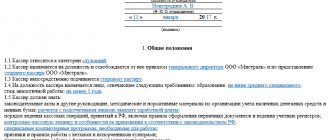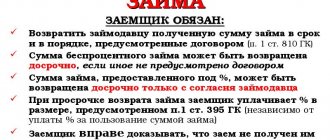I. General provisions
1. A person who has basic general education, short-term training or has undergone instruction is appointed to the position of a janitor.
2. No work experience requirements.
3. Additional requirements:
— passing mandatory preliminary (upon employment) and periodic medical examinations (examinations), as well as extraordinary medical examinations (examinations) in the manner established by the legislation of the Russian Federation
- age not younger than 18 years
— undergoing training on labor protection and fire safety in the workplace
4. Appointment to the position of a janitor, as well as dismissal from it, is made by order of the head of the organization.
5. The janitor must know:
5.1. Norms and rules for maintaining elements of external landscaping of the local area
5.2. Layout and boundaries for cleaning the assigned local area
5.3. Requirements for the sanitary condition of the local area
5.4. Standard set of equipment, mechanization, personal protective equipment and consumables for work
5.5. Properties of detergents and rules for their use
5.6. The principle of operation of storm drainage
5.7. Rules for the use of anti-icing coatings
5.8. Roller filling technology
5.9. Rules for clearing snow, ice and icicles from building envelope elements
5.10. Requirements for illumination of the local area
5.11. Addresses and telephone numbers of emergency dispatch service
5.12. Internal labor regulations
5.13. Requirements for labor protection, industrial sanitation, fire and industrial safety during work
5.14. _____________________________________________________________________
6. The janitor reports directly to __________________.
7. During the absence of a janitor (vacation, illness, etc.), his duties are performed by a person appointed in the prescribed manner. This person acquires the corresponding rights and is responsible for their proper execution.
8. ________________________________________________________________
https://youtu.be/Cn_9FxS_Ztc
Janitor in HOA
Each of the companies servicing residential buildings must have a janitor, and if the HOA serves a dozen objects, then there may be several workers cleaning the territory.
Is it necessary to draw up employment contracts and job responsibilities for such employees?
Requirements
A janitor working in a partnership must be:
— executive;
- neat;
- polite, friendly;
- disciplined.
Since there are usually not so many working personnel in the partnership’s staff, it is unlikely that the employee hired for this position will not be overloaded, so the list of requirements can be expanded - for example, the ability to use carpentry tools, a drill, etc.
Responsibilities and rights
The duties of a janitor include:
- maintain cleanliness and order within the territory entrusted to him;
- protect and maintain in good condition small forms - trash cans, benches, as well as sports and children's playgrounds - in case of breakdowns, lack of sand in sandboxes, etc. report to the board for action;
— carry out seasonal work: remove snow and ice in winter, rake and sweep leaves in autumn, fight weeds in summer.
If necessary, the HOA board may impose other responsibilities, such as:
— digging up soil in flower beds, planting flowers and providing care for them, including watering and loosening the soil;
— painting of fences, small forms, equipment for children's and sports grounds;
- repair of benches, etc.
Depending on local conditions, responsibilities may vary. As for rights, but they also exist:
— submit ideas and proposals for improving the improvement of the territory to the board of the partnership;
- guaranteed by the Constitution and provided for by labor legislation - for vacation, sick leave, insurance, etc.
It goes without saying that a territory cleaner in an HOA can enjoy constitutional rights only if he is officially registered, with a full social package and with a signed employment agreement, in which the figures of cash payments and their frequency are recorded in black and white.
It must be borne in mind that the employer can include a clause in the contract on the application of a system of fines for comments, indiscipline, etc.
Responsibility
The territory cleaner must also be responsible at his workplace; his responsibility has the following limits:
- material - for issued uniforms, equipment, tools, materials;
— high-quality performance of all duties provided for by the position instructions.
Within the scope of duty, the territory cleaner is responsible for the cleanliness, order and maintenance of the territory in a sanitary condition.
Open hatches, pits that have appeared, the smell of gas - all this should alert the cleaner and force him to immediately report to the board about taking urgent measures.
Employment contract
If the position is full-time, then an employment agreement is concluded between the partnership and the janitor, beneficial to both parties. The mentality of our people is such that verbal agreements, unfortunately, mean little, and when there is paper with a seal and you signed under it, this is a completely different matter.
This document also imposes obligations on the board; if the conditions are not met, the court will consider such a document to be sufficient grounds for opening a case.
In this case, the contract can be fixed-term, usually 1-2 years. The employment contract contains the following sections:
- General terms;
— listing of responsibilities;
- salary;
— working hours;
— conditions of rest;
- final section with details and signatures of the parties.
When changing the terms of the contract (Chapter 12, Article 72 of the Labor Code of the Russian Federation), an additional agreement must be drawn up, signed by both parties, otherwise the changes will be invalid.
Only a detailed contract, written down to the smallest detail, protects both the employer and the employee himself from problems. A lawyer’s visa will confirm that the document has been drawn up in full compliance with legal requirements.
Sample employment contract with a janitor in a homeowners association
EMPLOYMENT AGREEMENT N ____ with a janitor (with the condition of a probationary period; for an indefinite period)
G. ____________
"___"_________ ____ G.
_________________, hereinafter referred to as "Employer", represented by _________________, acting____ on the basis of _________________, on the one hand, and _________________, hereinafter referred to as "Employee", on the other hand, have entered into this agreement as follows.
1. SUBJECT OF THE EMPLOYMENT AGREEMENT 1.1. An employee is hired to perform work as a janitor with a salary of _______ (___________) rubles per month. 1.2. The employee is obliged to start work from “___”________ ___ 1.3. This agreement is concluded for an indefinite period. 1.4. This employment contract comes into force from the moment it is signed by both parties. 1.5. Work for the Employer is the main place of work for the Employee. 1.6. The employee is given a probationary period of _____ months (no more than 3 months) from the date of commencement of work specified in clause 1.2 of this agreement.
2. OBLIGATIONS OF THE PARTIES 2.1. The employee reports directly to ___________________. 2.2. The employee is obliged to: 2.2.1. Perform the following job responsibilities: Cleaning streets, sidewalks, areas and areas adjacent to the serviced household. Timely clearing of snow and ice from sidewalks, pavements and paths, sprinkling them with sand. Cleaning fire wells for easy access at any time. Digging and cleaning grooves and trays for water drainage. Washing street trash cans and periodically clearing them of debris. Watering courtyards, pavements and sidewalks. Monitoring the timely cleaning of yard trash cans, public toilets and their sanitary condition, maintaining cleanliness in the stairwells and other common areas outside the apartments; for the serviceability and safety of all external house equipment and property (fences, stairs, cornices, drainpipes, trash cans, signs, etc.), for the safety of green spaces and their fences; for the safety of cellars, sheds, warehouses, and in the absence of residents - their apartments. Hanging flags on the facades of houses, as well as removing and storing them. Timely lighting and extinguishing of lights in the serviced area. Control over the exit and entry of residents. Reporting violations to the building manager, local inspector or police department. Participation in patrols of household territories conducted by the police. Taking measures to prevent crimes and violations of order. Immediate reporting of a crime to the police department; protection of traces of a crime until the arrival of police representatives. Providing assistance to persons affected by accidents, the elderly, sick, children, etc. Carrying out other cleaning work in the assigned area. 2.2.2. Take care of the Employer's property and not disclose information and information that is a trade secret of the Employer. 2.2.3. Do not give interviews, conduct meetings or negotiations regarding the activities of the organization without the permission of its management. 2.2.4. Comply with the Employer's internal labor regulations, production and financial discipline, and conscientiously perform their job duties specified in clause 2.2.1 of this employment contract. 2.2.5. Comply with labor protection, safety and industrial sanitation requirements. 2.3. The employee has the right to: 2.3.1. Provision of work stipulated by clause 1.1 of this agreement. 2.3.2. Timely and full payment of wages in accordance with your qualifications, complexity of work, quantity and quality of work performed. 2.4. The employee also has other rights provided for by the Labor Code of the Russian Federation. 2.5. The employer undertakes: 2.5.1. Provide the Employee with work in accordance with the terms of this employment contract. The Employer has the right to require the Employee to perform duties (work) not stipulated by this employment contract only in cases provided for by the labor legislation of the Russian Federation. 2.5.2. Ensure safe working conditions in accordance with the requirements of the Safety Regulations and labor legislation of the Russian Federation. 2.5.3. Carry out compulsory social insurance of the Employee against accidents at work and occupational diseases. 2.5.4. Familiarize the Employee with labor protection requirements, other local regulations directly related to his work activities, and the Internal Labor Regulations. 2.5.5. Pay the wages due to the Employee on time and in full, as well as make other payments within the time limits established by the Internal Labor Regulations. 2.6. The employer has the right: 2.6.1. Encourage the Employee for conscientious, effective work by paying bonuses and remuneration in the manner and on the terms established by the Employer, provide financial assistance taking into account the assessment of the Employee’s personal labor participation in the work of the organization in the manner established by the Regulations on remuneration in the organization and other local acts of the Employer. 2.6.2. Pay for training, if necessary, in order to improve the Employee’s qualifications. 2.6.3. Require the Employee to fulfill his job duties and take care of the Employer’s property. 2.6.4. Bring the Employee to disciplinary and financial liability in the manner established by the Internal Labor Regulations and the norms of the current legislation of the Russian Federation. 2.6.5. Conduct certification of the Employee in accordance with the Certification Regulations in order to identify the real level of professional competence of the Employee. 2.6.6. Conduct an assessment of the Employee’s performance in accordance with the Regulations on Labor Performance Assessment. 2.6.7. With the consent of the Employee, involve him in the performance of certain tasks that are not part of the Employee’s job responsibilities. 2.6.8. With the consent of the Employee, involve him in performing additional work in a different or the same profession (position) for an additional fee. 2.6.9. Exercise other rights provided for by the current legislation of the Russian Federation and local regulations.
3. WORKING HOURS <*>. HOLIDAYS 3.1. The employee has the following working hours: __________________________ <*>. Weekend: ________________________________. Work is not carried out on the following holidays: - January 1, 2, 3, 4 and 5 - New Year holidays; — January 7 — Nativity of Christ; — February 23 — Defender of the Fatherland Day; — March 8 — International Women's Day; — May 1 — Spring and Labor Day; — May 9 — Victory Day; — June 12 — Russia Day; — November 4 — Day of National Unity. 3.2. The Employee’s work in the position specified in clause 1.1 of the agreement is carried out under normal conditions. 3.3. Start time: ______________________ <*>. Closing time: _________________________________ <*>. 3.4. During the working day, the Employee is given a break for rest and food from ____ hour. up to ____ hour, which is not included during working hours. 3.5. The employee is granted annual leave of _____ (at least 28) calendar days. Leave for the first year of work is granted after six months of continuous work with the Employer. By agreement of the parties, paid leave may be provided to the Employee before the expiration of six months. Leave for the second and subsequent years of work may be granted at any time of the working year in accordance with the order of provision of annual paid leave established by the Employer. 3.6. For family reasons and other valid reasons, the Employee, at his request, may be granted short-term leave without pay. 3.7. When performing work of various qualifications, combining professions, work outside the normal working hours, at night, weekends and non-working holidays, etc. The employee is paid the following additional payments: 3.7.1. Work on a day off and a non-working holiday is paid in the amount of no less than a single part of the salary (official salary) for a day or hour of work in excess of the salary (official salary), if work on a day off or a non-working holiday was carried out within the monthly standard working time, and in the amount not less than double the salary (official salary) for a day or hour of work in excess of the salary (official salary), if the work was performed in excess of the monthly working time standard. 3.7.2. When the Employee, with his written consent, performs additional work in another profession (position) or when performing the duties of a temporarily absent employee without release from his main job, an additional payment is made for combining professions (positions) or performing the duties of a temporarily absent employee in the amount established by an additional agreement of the parties to the employment agreement. agreement. 3.7.3. Overtime work is paid for the first two hours of work at least one and a half times the rate, for subsequent hours - at least twice the rate. At the Employee's request, overtime work, instead of increased pay, may be compensated by providing additional rest time, but not less than the time worked overtime. 3.8. Downtime caused by the Employer is paid in the amount of at least two-thirds of the Employee’s average salary. Downtime due to reasons beyond the control of the Employer and Employee is paid in the amount of at least two-thirds of the tariff rate (salary). Downtime caused by the Employee is not paid. 3.9. The conditions and amounts of benefits paid by the Employer to the Employee are established in ________________. 3.10. Deductions may be made from the Employee's salary in cases provided for by the legislation of the Russian Federation.
4. RESPONSIBILITY OF THE PARTIES 4.1. In case of non-fulfillment or improper fulfillment by the Employee of his duties specified in this agreement, violation of labor legislation, the Employer’s internal labor regulations, as well as causing material damage to the Employer, he bears disciplinary, financial and other liability in accordance with the current legislation of the Russian Federation. 4.2. The Employer bears financial and other liability in accordance with current legislation in the following cases: a) illegal deprivation of the Employee’s opportunity to work; b) causing damage to the Employee as a result of injury or other damage to health associated with the performance of his work duties; c) causing damage to the Employee’s property; d) delays in payment of wages and other payments due to the Employee; e) in other cases provided for by the legislation of the Russian Federation. In cases provided for by law, the Employer is obliged to compensate the Employee for moral damage caused by the unlawful actions of the Employer. 4.3. The Employee is obliged to compensate the Employer for direct actual damage caused to him. Lost income (lost profits) cannot be recovered from the Employee. Direct actual damage is understood as a real decrease in the Employer’s available property or deterioration in the condition of said property (including property of third parties located by the Employer, if the Employer is responsible for the safety of this property), as well as the need for the Employer to make costs or excess payments for the acquisition, restoration of property or compensation for damage caused by the Employee to third parties. 4.4. Each party is required to prove the amount of damage caused.
5. TERMINATION OF AN EMPLOYMENT CONTRACT 5.1. The grounds for termination of an employment contract are: 1) agreement of the parties (Article 78 of the Labor Code of the Russian Federation); 2) expiration of the employment contract (Article 79 of the Labor Code of the Russian Federation), except for cases where the employment relationship actually continues and neither party has demanded its termination; 3) termination of the employment contract at the initiative of the Employee (Article 80 of the Labor Code of the Russian Federation); 4) termination of the employment contract at the initiative of the Employer (Articles 71 and 81 of the Labor Code of the Russian Federation); 5) transfer of the Employee, at his request or with his consent, to work for another employer or transfer to an elective job (position); 6) the Employee’s refusal to continue working in connection with a change in the owner of the organization’s property, a change in the jurisdiction (subordination) of the organization or its reorganization (Article 75 of the Labor Code of the Russian Federation); 7) the Employee’s refusal to continue working due to a change in the terms of the employment contract determined by the parties (Part 4 of Article 74 of the Labor Code of the Russian Federation); the Employee’s refusal to transfer to another job, which is necessary for him in accordance with a medical report issued in the manner established by federal laws and other regulatory legal acts of the Russian Federation, or the Employer’s lack of relevant work (parts three and four of Article 73 of the Labor Code of the Russian Federation); 9) the Employee’s refusal to be transferred to work in another location together with the Employer (Part 1 of Article 72.1 of the Labor Code of the Russian Federation); 10) circumstances beyond the control of the parties (Article 83 of the Labor Code of the Russian Federation); 11) violation of the rules for concluding an employment contract established by federal laws, if this violation excludes the possibility of continuing work (Article 84 of the Labor Code of the Russian Federation). An employment contract may also be terminated on other grounds provided for by federal laws. 5.2. The day of termination of the employment contract in all cases is the Employee’s last day of work, with the exception of cases where the Employee did not actually work, but retained his place of work (position).
The grounds for termination of an employment contract are: 1) agreement of the parties (Article 78 of the Labor Code of the Russian Federation); 2) expiration of the employment contract (Article 79 of the Labor Code of the Russian Federation), except for cases where the employment relationship actually continues and neither party has demanded its termination; 3) termination of the employment contract at the initiative of the Employee (Article 80 of the Labor Code of the Russian Federation); 4) termination of the employment contract at the initiative of the Employer (Articles 71 and 81 of the Labor Code of the Russian Federation); 5) transfer of the Employee, at his request or with his consent, to work for another employer or transfer to an elective job (position); 6) the Employee’s refusal to continue working in connection with a change in the owner of the organization’s property, a change in the jurisdiction (subordination) of the organization or its reorganization (Article 75 of the Labor Code of the Russian Federation); 7) the Employee’s refusal to continue working due to a change in the terms of the employment contract determined by the parties (Part 4 of Article 74 of the Labor Code of the Russian Federation); the Employee’s refusal to transfer to another job, which is necessary for him in accordance with a medical report issued in the manner established by federal laws and other regulatory legal acts of the Russian Federation, or the Employer’s lack of relevant work (parts three and four of Article 73 of the Labor Code of the Russian Federation); 9) the Employee’s refusal to be transferred to work in another location together with the Employer (Part 1 of Article 72.1 of the Labor Code of the Russian Federation); 10) circumstances beyond the control of the parties (Article 83 of the Labor Code of the Russian Federation); 11) violation of the rules for concluding an employment contract established by federal laws, if this violation excludes the possibility of continuing work (Article 84 of the Labor Code of the Russian Federation). An employment contract may also be terminated on other grounds provided for by federal laws. 5.2. The day of termination of the employment contract in all cases is the Employee’s last day of work, with the exception of cases where the Employee did not actually work, but retained his place of work (position).
6. GUARANTEES AND COMPENSATIONS 6.1. During the period of validity of this employment contract, the Employee is subject to all guarantees and compensation provided for by the current labor legislation of the Russian Federation. 6.2. Upon termination of an employment contract due to the liquidation of an organization (Clause 1, Part 1, Article 81 of the Labor Code of the Russian Federation) or a reduction in the number or staff of the organization's employees (Clause 2, Part 1, Article 81 of the Labor Code of the Russian Federation), the dismissed Employee is paid severance pay in the amount of the average monthly earnings, and also retains the average monthly earnings for the period of employment, but not more than two months from the date of dismissal (including severance pay). In exceptional cases, the average monthly salary is retained by the dismissed Employee for the third month from the date of dismissal by decision of the employment service body, provided that within two weeks after the dismissal the Employee applied to this body and was not employed by it. Severance pay in the amount of two weeks' average earnings is paid to the Employee upon termination of the employment contract in connection with: - the Employee's refusal to transfer to another job, which is necessary for him in accordance with the medical certificate issued in the manner established by federal laws and other regulatory legal acts of the Russian Federation, or the Employer’s lack of relevant work (clause 8, part 1, article 77 of the Labor Code of the Russian Federation); — calling up the Employee for military service or sending him to an alternative civil service replacing it (Clause 1, Part 1, Article 83 of the Labor Code of the Russian Federation); — reinstatement of the employee who previously performed this work (clause 2, part 1, article 83 of the Labor Code of the Russian Federation); — the Employee’s refusal to be transferred to work in another location together with the Employer (clause 9, part 1, article 77 of the Labor Code of the Russian Federation); — recognition of the Employee as completely incapable of working in accordance with a medical certificate issued in the manner established by federal laws and other regulatory legal acts of the Russian Federation (clause 5, part 1, article 83 of the Labor Code of the Russian Federation); — refusal of the Employee to continue working in connection with a change in the terms of the employment contract determined by the parties (clause 7, part 1, article 77 of the Labor Code of the Russian Federation). An employment contract or collective agreement may provide for other cases of payment of severance pay, as well as establish increased amounts of severance pay.
7. TYPES AND CONDITIONS OF SOCIAL INSURANCE 7.1. The Employer guarantees the provision of insurance to the Employee in the compulsory social insurance system, the insurance coverage for which is: 1) payment to the medical institution of expenses associated with providing the insured person with the necessary medical care; 2) old age pension; 3) disability pension; 4) survivor's pension; 5) temporary disability benefits; 6) benefits in connection with work injury and occupational disease; 7) maternity benefits; monthly child care allowance until the child reaches the age of one and a half years; 9) unemployment benefits; 10) a one-time benefit for women who registered with medical institutions in the early stages of pregnancy; 11) one-time benefit for the birth of a child; 12) allowance for sanatorium treatment; 13) social benefit for funeral.
The Employer guarantees the provision of insurance to the Employee in the compulsory social insurance system, the insurance coverage for which is: 1) payment to the medical institution of expenses associated with providing the insured person with the necessary medical care; 2) old age pension; 3) disability pension; 4) survivor's pension; 5) temporary disability benefits; 6) benefits in connection with work injury and occupational disease; 7) maternity benefits; monthly child care allowance until the child reaches the age of one and a half years; 9) unemployment benefits; 10) a one-time benefit for women who registered with medical institutions in the early stages of pregnancy; 11) one-time benefit for the birth of a child; 12) allowance for sanatorium treatment; 13) social benefit for funeral.
8. SPECIAL CONDITIONS 8.1. The terms of this employment contract are legally binding on the parties. All changes and additions to this employment contract are formalized by a bilateral written agreement. 8.2. Disputes between the parties arising during the execution of an employment contract are considered in the manner established by the current legislation of the Russian Federation. 8.3. In all other respects that are not provided for in this employment contract, the parties are guided by the legislation of the Russian Federation governing labor relations. 8.4. The agreement is drawn up in two copies having equal legal force, one of which is kept by the Employer and the other by the Employee. 8.5. Before signing the employment contract, the Employee is familiar with the following documents: _____________________________ _____________________________ _____________________________
9. ADDRESSES AND DETAILS OF THE PARTIES Employer: _________________________________________________________ ___________________________________________________________________________ ___________________________________________________________________________
Employee: _____________________________________________________________ passport: series _______ number ________, issued _______________________________ _____________________________ "___"____________ ____, registered at the address ________________________________________________________________.
SIGNATURES OF THE PARTIES:
Employer: Employee:
______________/______________ _______________________
M.P.
A copy was received and signed by Employee “___”___________ ____
Employee's signature: ____________________
<*> These provisions are included if for a given Employee the working time and rest time regime differs from the general rules in force for a given Employer.
Job description
The territory cleaner must also have a job description. And the point is not that he needs to list again everything that he is obliged to do.
This document is needed so that a person is not exploited for free, forced to do something that was not intended at the beginning, because then it turns out that conditions change, and changes are required in the TD.
The document includes the following points:
general provisions; listing of responsibilities; rights; responsibilities; responsibility.
Below should be the signature of the immediate supervisor to whom the cleaner reports.
The employee himself must be familiar with the instructions before signing them.
This paper is approved by the chairman of the board, and the date of approval is of considerable importance.
The updated instruction cancels the previous one, and the date of approval will indicate the starting point. If the changes are minor, then you can sign an addition or change to the previous version.
Sample job description for a janitor in a homeowners association
Janitor's job description
I affirm:
Chairman of the Board of HOA "Consent" E.A. Demina
" " _________20__
1. General provision 1.1. The janitor belongs to the category of technical performers. 1.2. A janitor is appointed to the position and dismissed from it by order of the chairman of the board of the Soglasiya HOA. 1.3. The janitor reports directly to the chairman of the board. 1.4. A person is appointed to the position of a janitor without any educational requirements. 1.5. The janitor is guided in his activities by: - norms and requirements for the state of appearance of the improvement of the territory adjacent to the house and environmental protection; — requirements for the sanitary condition of the territory; — layout and boundaries of cleaning the assigned territory; — The organization’s charter, internal labor regulations, and other regulations of the organization; — orders and instructions from management; - this job description.
2. Job responsibilities of a janitor A janitor performs the following job responsibilities: 2.1. Inspection of the work area for the presence of traumatic objects, open sewer wells; 2.2. Brings equipment and materials necessary for cleaning (sand, watering hoses, etc.); 2.3. Cleans the assigned area; 2.4. Fences dangerous areas and reports this to his immediate supervisor; 2.5. Cleans the trash cans installed on the territory as they are filled and where they are installed; 2.6. Paints trash cans as needed; 2.7. Clears the territory, driveways and sidewalks of snow, dust and small household debris; 2.8. Digs and cleans grooves and trays for water drainage; 2.9. Waters green spaces in the assigned territory 2.8. Ensure the safety of equipment and operation of watering taps for washing and watering from hoses; 2.9. Carry out activities to prepare inventory and cleaning equipment for work in the winter; 2.10. Sweeps the area, clears it of snow and ice; 2.11. Stacks ice and removes snow and ice formations; 2.12. Sprinkles the area with sand; 2.13. Removes and stores snow in places that do not interfere with the free passage of vehicles and pedestrian movement; 2.14. Clears ditches for drainage of melt water to hatches and receiving wells of the storm network; 2.9. Know the telephone numbers of the city administration and emergency services;
3. Rights of a janitor A janitor has the right to: 3.1. For the allocation of utility room; 3.2. Require management to assist in the performance of their duties and rights; 3.3. Receive from the management of the HOA the information necessary to carry out their work; 3.4. Make proposals aimed at improving the organization and quality of their work;
4. Responsibility The janitor is responsible: 4.1. For improper performance or failure to fulfill one’s job duties as provided for in this job description - within the limits determined by the current labor legislation of the Russian Federation; 4.2. For offenses committed in the course of carrying out their activities - within the limits determined by the current administrative, criminal and civil legislation of the Russian Federation; 4.3. For causing material damage - within the limits determined by the current labor and civil legislation of the Russian Federation.
I have read the instructions:
__________________________ (________________________________) signature initials, surname
"______"________________20____
Features of work
For a janitor, working in a co-owners' partnership differs from performing the same work in other enterprises.
Since residents pay for cleanliness and order out of their own pockets, the demand for this work is more than strict: if one resident is satisfied with everything, then a dozen others will point out numerous shortcomings.
And you need to be friendly with everyone, without giving free rein to your emotions.
Other nuances are related to the fact that the homeowners’ association has its own secrets in calculating utility bills, salaries, and also in spending finances. Communicating daily with the people living in the house, the cleaner inevitably becomes a person aware of the material well-being of the residents and their plans for vacation trips.
All information about the partnership and the residents is not subject to disclosure; this is a kind of confidential information.
Working as a yard cleaner in a company involves physical exertion, and often with a set duration of 8 hours - half a day, no one will allow you to idle here.
The advantages include the possibility of official employment with guaranteed constitutional rights.
Having agreed to work in a partnership as an employee cleaning the territory, you need to be prepared for conscientious intensive work with a lot of different responsibilities, and a trouble-free, efficient janitor is always worth his weight in gold, and instead of penalties he will receive only encouragement and kind words.
II. Job responsibilities
The duties of a janitor include:
1. Work on maintenance of elements of external landscaping of the local area:
— Collection and removal of small household waste and leaves from lawns, flower beds and playgrounds, including the use of small-scale mechanization, in the local area
— Watering sidewalks, flower beds, lawns and green spaces in the local area
— Mowing the lawn manually or using small-scale mechanization equipment
— Pruning trees and ornamental shrubs manually or using mechanized tools and devices
— Removal of contamination from small architectural forms and elements of playgrounds
— Cleaning trash cans and garbage containers installed in the local area as they are filled
— Washing and disinfection of trash cans and garbage containers installed in the local area as they become dirty
— Monitoring the timeliness of removal of garbage containers from the local area
2. Work on cleaning hard surfaces of the local area in summer conditions:
— Wet cleaning of sidewalks, roadsides of courtyard entrances, blind areas, utility and container sites, parking lots from dust, small household waste and leaves, including the use of small-scale mechanization equipment
— Collection, transportation and loading of estimates into waste containers
— Inspection and cleaning of rainwater grates to ensure their functionality
— Cleaning channels and trays for water drainage into hatches and receiving wells
3. Work on cleaning hard surfaces of the local area in winter conditions:
— Clearing passages for pedestrian traffic during heavy snowfall
— Chilling ice from sidewalks, roadsides of courtyard entrances, blind areas, utility and container sites, parking lots
— Removal and storage of snow and chipped ice in a specially designated area
— Sprinkling of sidewalks, roadsides of courtyard entrances, blind areas, utility and container sites, parking lots with de-icing compounds
— Clearing snow and ice from the covers of sewer, fire and gas wells
— Loading snow and chipped ice into cars for removal from the local area
— Filling the skating rink in a specially designated place
4. Related work in the technical premises of a residential building:
— Cleaning basements and attics
— Clearing snow and ice from the external steps of the entrance to the basement
— Sprinkling the steps of the entrance to the basement with de-icing compounds
— Removing snow, ice and icicles from the roof, awnings and lanterns of a residential building
— Turning on and off lighting in the serviced local area
— Reporting to the emergency dispatch service information about the presence of gas odor or damage to in-yard pipelines (heat supply, water supply, sewerage)
III. Rights
The janitor has the right:
1. Request and receive the necessary information, as well as materials and documents related to issues of their activities.
2. Make suggestions and comments on how to improve activities in the assigned area of work.
3. Demand that the management of the organization provide assistance, including the provision of organizational and technical conditions necessary for the performance of official duties.
4. Make independent decisions, guided by qualification requirements and job responsibilities
5.___________________________________________________________
IV. Responsibility
The janitor is responsible for:
1. For improper performance or failure to fulfill one’s job duties provided for in this job description - within the limits determined by the current labor legislation of the Russian Federation.
2. For offenses committed in the course of carrying out their activities - within the limits determined by the current administrative, criminal and civil legislation of the Russian Federation.
3. For causing material damage - within the limits determined by the current labor and civil legislation of the Russian Federation.
4. ____________________________________________________________________
This job description has been developed in accordance with the provisions (requirements) of the Labor Code of the Russian Federation dated December 30, 2001 No. 197 FZ (Labor Code of the Russian Federation) (with amendments and additions), the professional standard “Worker for comprehensive cleaning of the territory related to common property in an apartment building home" approved by order of the Ministry of Labor and Social Protection of the Russian Federation dated December 21, 2020. No. 1075n and other regulations governing labor relations.
Cleaning standards
Heavy physical activity when performing official duties as a housing and communal services janitor should be limited to the area that this employee can handle.
The standards for cleaning the territory for a housing and communal services janitor are regulated by the following legislative acts:
- Order of the State Construction Committee of the Russian Federation dated December 9, 1999 N 139.
- Resolution of the State Construction Committee of the Russian Federation No. 170 dated September 27, 2003.
- Resolution of the Ministry of Labor of the Russian Federation dated June 24, 1996 N 38.
Recommended standards for area and output (time standards) are periodically reviewed and approved by local authorities, and are assigned to the janitor in an employment contract with him.
It turned out that the standards for the work activity of a housing and communal services cleaner are a whole science.
For example, sidewalks are divided into classes, depending on road congestion:
- 1st class, if no more than 50 people pass in both directions in 1 hour;
- 2nd class, when the intensity of pedestrian traffic is in the range from 50 to 100 people. at one o'clock;
- 3rd grade – more than 100 people will pass within 1 hour.
Sidewalks crowded with people are difficult to clean without disturbing pedestrians; it is more convenient to sweep and water them early in the morning or late in the evening, while areas of different intensity classes require different cleaning frequencies.
Since the work of a janitor remains manual, the norm for the area to be cleaned is still taken to be 500 m2 - specifically the area to be cleaned, and not the total.









